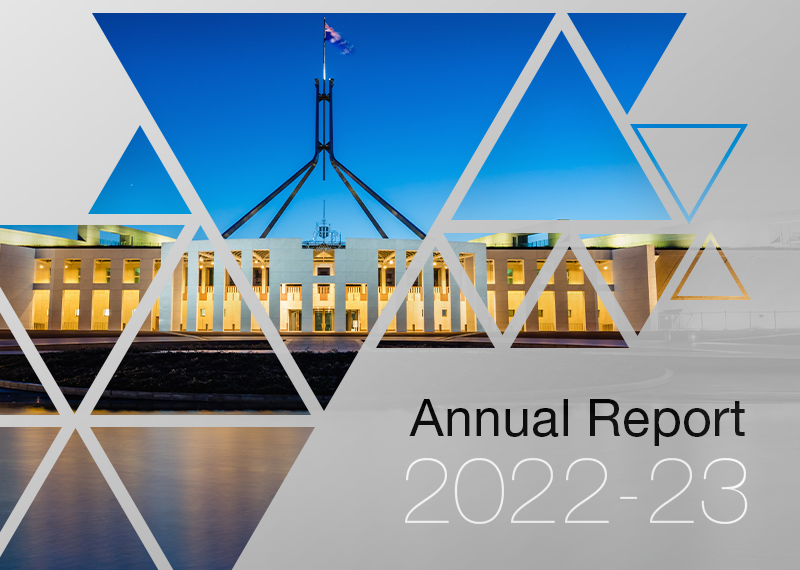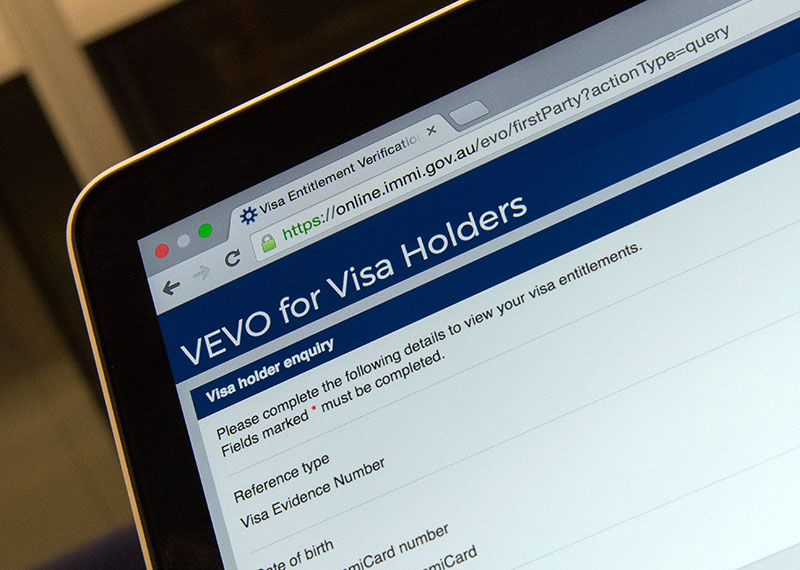Browse our range of reports and publications including performance and financial statement audit reports, assurance review reports, information reports and annual reports.
This annual report documents the performance of the Australian National Audit Office (ANAO) in the financial year ended 30 June 2023. The report addresses all applicable obligations under the Public Governance, Performance and Accountability Act 2013; the Public Governance, Performance and Accountability Rule 2014; the Auditor-General Act 1997; the performance measures set out in the outcome and programs framework in the ANAO’s Portfolio Budget Statements 2022–23 and in the ANAO Corporate Plan 2022–23; and annual reporting requirements set out in other relevant legislation.
Please direct enquiries through our contact page.
Increased transparency and accountability on progress with major Defence equipment acquisitions has been a focus of parliamentary interest for some time. Beginning in 2007–08, an annual program has been established in conjunction with the Department of Defence to enable the ANAO to review and report to the Parliament on the status of major Defence acquisition projects, as set out in the Major Projects Report. The review includes information relating to the cost, schedule and progress towards delivery of required capability of individual projects as at 30 June each year, and is undertaken at the request of the Joint Committee of Public Accounts and Audit.
Please direct enquiries through our contact page.
The Auditor-General responded on 11 March 2020 to follow-up correspondence from Senator Sarah Hanson-Young, requesting an audit into the Federal and South Australian governments’ agreement to reduce SA’s Murray-Darling river water allocation by 100GL and Commonwealth funding provided to increase the use of the state’s desalination plant to replace the water. The Auditor-General responded to the original correspondence from Senator Hanson-Young on 19 December 2019. The Auditor-General provided a follow-up response to Senator Hanson-Young on 24 July 2020.
Please direct enquiries relating to requests for audit through our contact page.
Increased transparency and accountability on progress with major Defence equipment acquisitions has been a focus of parliamentary interest for some time. Beginning in 2007–08, an annual program has been established in conjunction with the Department of Defence to enable the ANAO to review and report to the Parliament on the status of major Defence acquisition projects, as set out in the major projects report. The review includes information relating to the cost, schedule and progress towards delivery of required capability of individual projects as at 30 June each year, and is undertaken at the request of the Joint Committee of Public Accounts and Audit.
Please direct enquiries through our contact page.
The Australian Public Service Commission's Delivering for Tomorrow: APS Workforce Strategy 2025 states that the Australian Public Service (APS) will continue to deploy a flexible approach to resourcing that strikes a balance between a core workforce of permanent public servants and the selective use of external expertise. This will mean a continuing mixed workforce approach, where APS employees and non-APS workers are used to deliver outcomes within agencies. In this context, the strategy highlights the value of ensuring that agencies take a structured approach to the use of non-APS employees.
In a series of three performance audits, the ANAO has examined the arrangements established by Services Australia, the Department of Veterans' Affairs and the Department of Defence for the use, engagement and management of contractors against the same audit objective and criteria.
Please direct enquiries through our contact page.
The objective of this audit was to assess the efficiency and effectiveness of the Commonwealth's management of the Great Barrier Reef as implemented by the Authority. This audit was undertaken because of the environmental significance of the Great Barrier Reef Region; its growing economic importance; recent changes to the Authority's budget arrangements; and because the Authority had not been subject to a performance audit since its establishment approximately 20 years ago.
The objective of the audit was to form an opinion and report on the efficiency, economy and administrative effectiveness of the management of the investigation and recovery of the proceeds of crime. The audit examined a sample of cases of serious crime investigated by the NCA and the AFP and prosecuted by the DPP.
This follow-up audit examined the actions taken by the Department of Veterans' Affairs to address the ANAO's recommendations made in Audit Report No.28 1993-94 regarding the use of private hospitals on behalf of the Repatriation Commission. The recommendations from that audit were aimed at improving the basis and consistency of contracts with the private sector for the use of private hospitals and providing added assurance that quality care was available to the veteran community.
The objective of the audit was to report to Parliament on the progress Defence has made since June 2001 in implementing appropriate strategies for recruiting, developing and retaining skilled IT personnel. The audit focused on management of specialist information system skills and did not examine skills needed by users of information systems, although the latter is of obvious importance for overall performance. In June 2001, the Joint Committee of Public Accounts and Audit (JCPAA), after reviewing the ANAO's Audit Report No. 11 Knowledge System Equipment Acquisition Projects in Defence, commented that its major concern about Defence's ability to develop a knowledge edge with adequate coherence, centred on Defence's ability to recruit, develop and retain skilled individuals needed in all parts of the DIE. The JCPAA recommended that the ANAO conduct an audit of Defence's strategies for recruiting, developing and retaining skilled IT personnel.
The objective of the audit was to assess the effectiveness of the Department of Immigration and Border Protection’s (DIBP) management of compliance with visa conditions. To form a conclusion against this objective, the ANAO assessed whether DIBP:
- effectively manages risk and intelligence related to visa holders’ non-compliance with their visa conditions;
- promotes voluntary compliance through targeted campaigns and services that are appropriate and accessible to the community;
- conducts onshore compliance activities that are effective and appropriately targeted; and
- has effective administrative arrangements to support visa holders’ compliance with their visa conditions.
Please direct enquiries relating to reports through our contact page.




